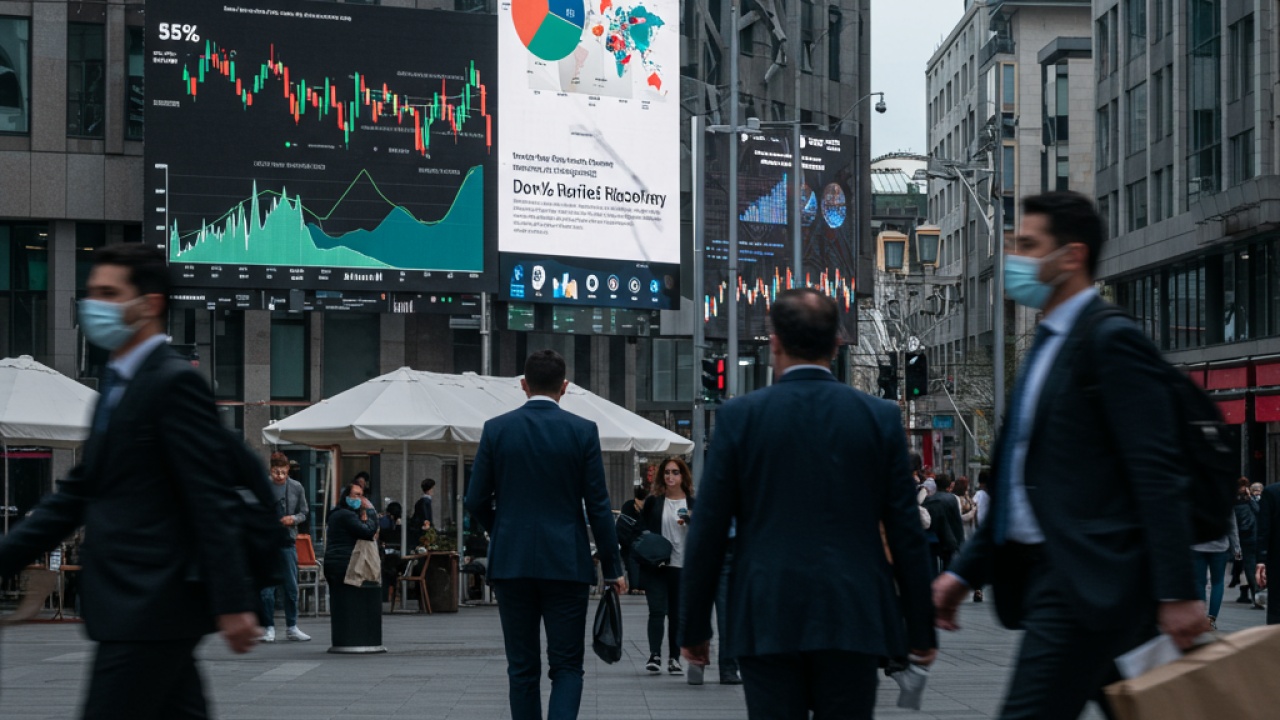The aftermath of the pandemic has sent reverberations throughout the world, raising questions about economic resilience, corporate responsibility, and ethical governance. As real-world financial structures shift and adapt to a new normal, various cinematic narratives reflect and exaggerate these changes, providing insightful commentaries on the evolving landscape of finance, law, and corporate dialogue. One such film that encapsulates these themes is “The Big Short,” a cinematic exposition of the 2008 financial crisis rooted in real events that illuminates the intricacies of investment fraud, ethical dilemmas, and regulatory failures. While it delves into an earlier economic disruption, its themes resonate powerfully in a post-pandemic context, reflecting the ongoing challenges that arise from systemic vulnerabilities.
Unpacking Complex Narratives
At its core, “The Big Short” is not merely a film about money; it is a stark commentary on human behavior in the face of greed, ignorance, and systemic failure. Directed by Adam McKay and based on Michael Lewis’s non-fiction book, the film demystifies complex financial instruments like mortgage-backed securities and collateralized debt obligations (CDOs). The structure of the film employs an innovative narrative style, utilizing direct addresses to the audience, engaging cameos, and whimsical analogies to elucidate complex financial jargon. This approach serves both as a pedagogical tool for audiences unfamiliar with the financial landscape and as a critique of the opaque mechanisms that led to economic collapse.
As audiences adapt to the post-pandemic economy, many of the issues raised by “The Big Short”—particularly the intersection of ethics and finance—become increasingly relevant. The pandemic has accelerated shifts in financial markets, revealing existing vulnerabilities and ethical dilemmas. With surges in unemployment rates, rising bankruptcies, and the availability of government stimulus funds, the desperate lengths to which individuals and corporations can go to preserve their economic power echoed the reckless behavior portrayed in the film. Through its portrayal of moral conflict and personal stakes, “The Big Short” offers key insights into how the financial industry has navigated, and continues to navigate, this ongoing tumult.
A Study in Investment Fraud
Investment fraud remains a topic of extreme importance, especially as the world adjusts to significant economic shifts. In “The Big Short,” the narrative reveals how key characters, including Michael Burry (played by Christian Bale) and Mark Baum (Steve Carell), identified the impending collapse of the housing market fueled by pervasive malfeasance within the banking sector. They understood that subprime mortgages—granted to individuals with poor credit histories—were bound to result in widespread defaults. This realization set them apart as the few who recognized the unsustainable nature of these financial products, positioning them, albeit uncomfortably, against a tide of market optimism.
In a post-pandemic context, similar dynamics appear to resonate within various sectors. For instance, as governments allocate emergency funds to revive struggling businesses, reports of fraudulent claims have surged. The concept of fraud applies not only to individuals but also extends to companies that exploit legal loopholes and regulations for personal gain. The ethical implications are vast, challenging the social contract and raising questions about accountability and transparency in both finance and law. By drawing parallels between Burry and Baum’s predicament and contemporary issues surrounding pandemic relief funds, we underscore a crucial lesson: moral vigilance is paramount in safeguarding economic integrity.
Legal Dilemmas and Regulatory Challenges
“The Big Short” delves deeply into the legal and regulatory frameworks—or lack thereof—that allowed the crisis to unfold. The film presents an unsettling portrait of Wall Street’s ethical paradox, showcasing investment banks engaging in reckless behavior while regulatory bodies remained inept or complicit. The characters navigate a labyrinth of legal complexities, often at odds with vested interests and the reluctance of those in power to accept accountability for failures. This tension serves as a reminder of the fragility of regulatory oversight, a theme that has gained renewed importance as industries grapple with the implications of government intervention post-pandemic.
In transitioning to today’s environment, we must recognize that the pandemic has exposed the limitations of existing legal frameworks in numerous sectors. The rapid pace of technological advancement, coupled with the exigencies necessitated by the pandemic, has resulted in an often-ineffective regulatory apparatus. For example, the booming growth of tech companies offering financial services—fintech—raises questions about consumer protection, data privacy, and the efficacy of prevailing regulations. In this manner, “The Big Short” acts as a cautionary tale about the need for regulatory reform and adaptability in handling unanticipated crises, both financial and legal.
Ethical Considerations in Crisis Response
Ethics is a recurring theme throughout “The Big Short,” prompting reflections on the responsibilities of those in power. The relationship between personal gain and societal impact becomes increasingly tenuous as financial instruments with far-reaching consequences are deployed with minimal transparency. The inherently conflict-ridden nature of capitalism often necessitates a balance between profit maximization and ethical stewardship—a challenge that comes to the fore during economic crises.
Post-pandemic, we witness a similar struggle within the finance and corporate sectors. Several businesses have seen their fortunes swell while many others languish amid economic uncertainty. As public scrutiny grows, companies must grapple with the ethical ramifications of their decisions in ways they may have previously overlooked. The normalization of practices such as downsizing, cost-cutting, and prioritizing shareholder returns can draw parallels with the self-serving tendencies that fueled the financial crisis. Just as Baum and his colleagues wrestled with their financial windfall amidst tragedy, today’s corporate leaders face a pivotal choice: whether to act solely in the interest of profits or embrace a broader sense of responsibility toward their employees, customers, and the communities they serve.
Cinematic Contributions to Financial Literacy
The contribution of films like “The Big Short” transcends mere entertainment; they play a significant role in enhancing financial literacy. The film’s unique storytelling techniques merge education with narrative, deconstructing jargon and engaging audiences on an emotional level. This embrace of creativity in relaying complex subjects has significant implications for how audiences, including finance students and professionals, perceive the industry’s ethical dilemmas and systemic failures.
As audiences adapt to the new economic normal, cinematic narratives that focus on finance and law can serve as educational vehicles, raising awareness of critical issues. The intersection of entertainment and education fosters a culture of informed citizenship, encouraging stakeholders from various backgrounds to engage in conversations about ethical business practices, regulatory reform, and societal well-being. Engaging films can empower viewers to not only understand intricate financial issues but also spark discussions about what a reformed financial landscape—rooted in ethical principles—might look like in a post-pandemic world.
Characterization and Performance as a Reflection of Industry Practice
The compelling character portrayals in “The Big Short” exemplify the conflicts and personal stakes inherent in financial pursuits. Each protagonist is motivated by distinct ambitions, all while confronting substantial moral dilemmas. Notably, Christian Bale’s Michael Burry character epitomizes the dissonance of an outsider perspective. As an eccentric hedge fund manager, Burry’s conviction in the market’s imminent downfall places him at odds with larger institutional players who dismiss the signals he perceives. His character draws viewers into the complexities of understanding risk, particularly in a marketplace where few exhibited such foresight.
In the modern economic landscape, characterized by unprecedented volatility, business leaders and financial managers are often confronted with analogous dilemmas. The rise of remote work culture, pressures to maintain profitability, and the pervasive shift toward innovative business models demands agility and foresight, much like that demonstrated by Burry and his contemporaries. The repercussions of their decisions invariably affect employees and larger societal structures, echoing the fundamental ethical questions posed throughout the film. As businesses evolve, the essential qualities of foresight, ethical consideration, and accountability become increasingly vital for industry leaders navigating the complexities of the after-effects of the pandemic.
The Role of Cinematic Artistry in Reflecting Economic Discourse
Cinematically, “The Big Short” employs a blend of styles—mockumentary techniques, sharp editing, and irreverent humor—to create a narrative that is both educational and entertaining. The dynamic filming choices contribute to the understanding of complex economic themes by portraying them in an accessible manner. As such, the film achieves its dual aim of captivating viewers while shedding light on serious economic issues that have long persisted within society.
As we transition into a new normal post-pandemic, the relationship between storytelling and understanding economic discourse gains heightened significance. Filmmakers have the unique ability to distill complex themes into relatable narratives that promote discussion around pressing issues. Whether it’s exploring the ramifications of investment strategies, grappling with legal frameworks, or scrutinizing the ethics of corporate governance, such films become essential commentaries on the environment in which we operate. As we watch, the conversations birthed from cinematic reflections can inspire real change, leading to a more informed populace capable of navigating the complexities of the financial and legal landscapes.
Conclusion: Confronting the Future with Lessons from the Past
In weaving together personal narratives and systemic critiques, “The Big Short” illustrates a vital lesson about resilience in the face of adversity—a lesson that resonates profoundly in our current moment. The film’s exploration of investment fraud, ethical challenges, and regulatory shortcomings reflects the ongoing transformations in the economic landscape, echoing the uncertainties faced in a post-pandemic world. By bridging the gap between finance, law, and cinema, the film serves as both a cautionary tale and an educational experience, providing viewers with the tools necessary to navigate a world still grappling with the fallout of crisis.
As we forge ahead, the lessons imparted through the lens of film become essential in fostering a more ethical, accountable, and informed approach to finance and law. The challenges we face compel us to remain vigilant and adaptable, ensuring that our economic systems evolve in ways that prioritize transparency, integrity, and societal welfare. “The Big Short” serves as a herald of our responsibility to engage thoughtfully with the narratives of our time—remaining cognizant of the complexities presented, actively speaking to our roles as informed participants in a continuously shifting economic landscape.

